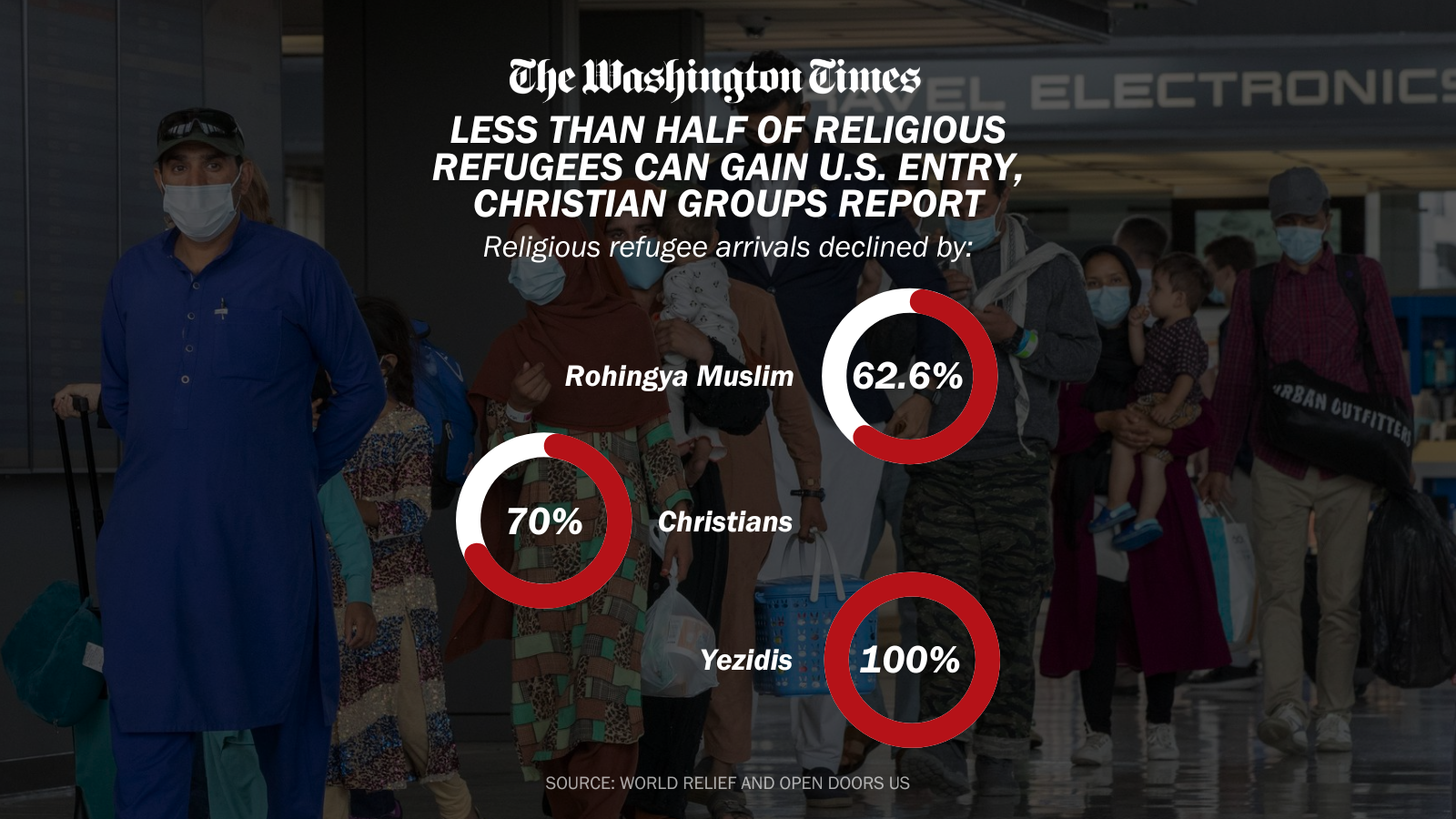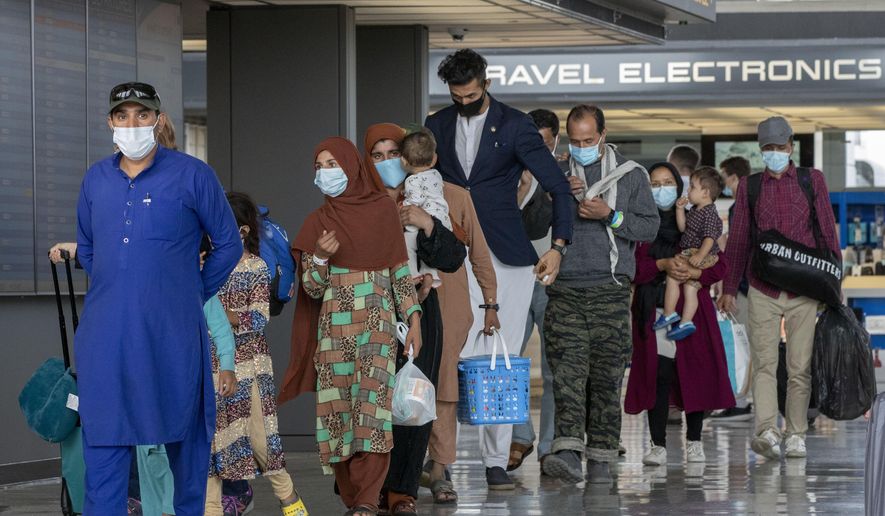The U.S. is no longer a “safe haven” for people fleeing religious persecution, according to a new report noting massive declines in U.S. arrivals by Christian, Jewish and Muslim refugees, among others.
Rohingya Muslim refugee arrivals declined by 62.6%, Christians by 70% and Yezidis by 100% between fiscal 2016 and fiscal 2022, according to the “Closed Doors” report released Wednesday by the evangelical humanitarian groups World Relief and Open Doors US.
In addition, fewer than half of the 125,000 refugees who could be admitted under a ceiling for U.S. resettlement in 2023 will be admitted, the advocates said. The U.S. is on track to resettle only 60,000 people fleeing religious persecution, they said.
The 70% decline in Christian refugee arrivals covers the 50 nations on the Open Doors US “World Watch List” where persecution of Christians is greatest. Open Doors CEO Ryan Brown said 1 in 7 Christians worldwide face discrimination or persecution and “some of the greatest increases in persecution-related violence” has been recorded in sub-Saharan Africa.

“We’re deeply concerned about the challenges that persecuted Christians face as well as other religious minorities, and we’re deeply motivated to see solutions that increase the ability and opportunity for people experiencing religious persecution, or Christians that are persecuted, to have opportunity to find a safe place to live and to raise their families,” said Myal Greene, World Relief president and CEO.
Mr. Brown said the 2021 collapse of Afghanistan’s government after U.S. forces withdrew let people see “the immediate cause and effect” of the Taliban’s takeover and subsequent persecution of minority religions.
“The situation in Afghanistan was horrific, and we all saw it unfold right before us. But the tragedy is that there are similar types of situations, just as grave consequences that are unfolding in other places around the globe today,” he said.
To help the persecuted, the groups want Congress to extend the 1990 Lautenberg Amendment, which established a presumption of immigration eligibility for Jews and Christians fleeing the Soviet Union and has been extended to cover other religious minorities seeking to escape persecution. The amendment was not included in this year’s foreign operations appropriations bill, Mr. Greene said.
World Relief and Open Doors US presented their report to Congress during a Capitol Hill briefing on Wednesday.
Sima Arshadi, an Iranian Christian who was admitted to the U.S. in 2016 and has since become an American citizen, told the briefing: “I’m asking you, as you stand in the halls of the most powerful country on Earth, to continue to generously welcome refugees and continue America’s long tradition of being a haven” for the persecuted.”
Brent Leatherwood, president of the Ethics & Religious Liberty Commission of the Southern Baptist Convention, said the 46,000 churches that comprise the nation’s largest Protestant denomination stand ready to help resettle victims of persecution.
“We just passed [an immigration reform] resolution at this past annual meeting” in June, “and it called for maintaining robust avenues of valid asylum claimants,” Mr. Leatherwood said in a statement. “So there is a lot of support out there, even among individuals that you would assume are politically conservative.”
El Paso Bishop Mark J. Seitz of Texas, the migration commission chair for the U.S. Conference of Catholic Bishops, said in a statement that his group is grateful “for the work of World Relief and Open Doors US on this updated report, which underscores just how grave the situation is for many of the world’s Christians. As a country, we must uphold and reaffirm our foundational commitment to religious liberty both at home and abroad, including through the life-saving avenues of refugee resettlement and asylum. This is a moral imperative as much as it is an integral part of our national identity.”
• Mark A. Kellner can be reached at mkellner@washingtontimes.com.




Please read our comment policy before commenting.